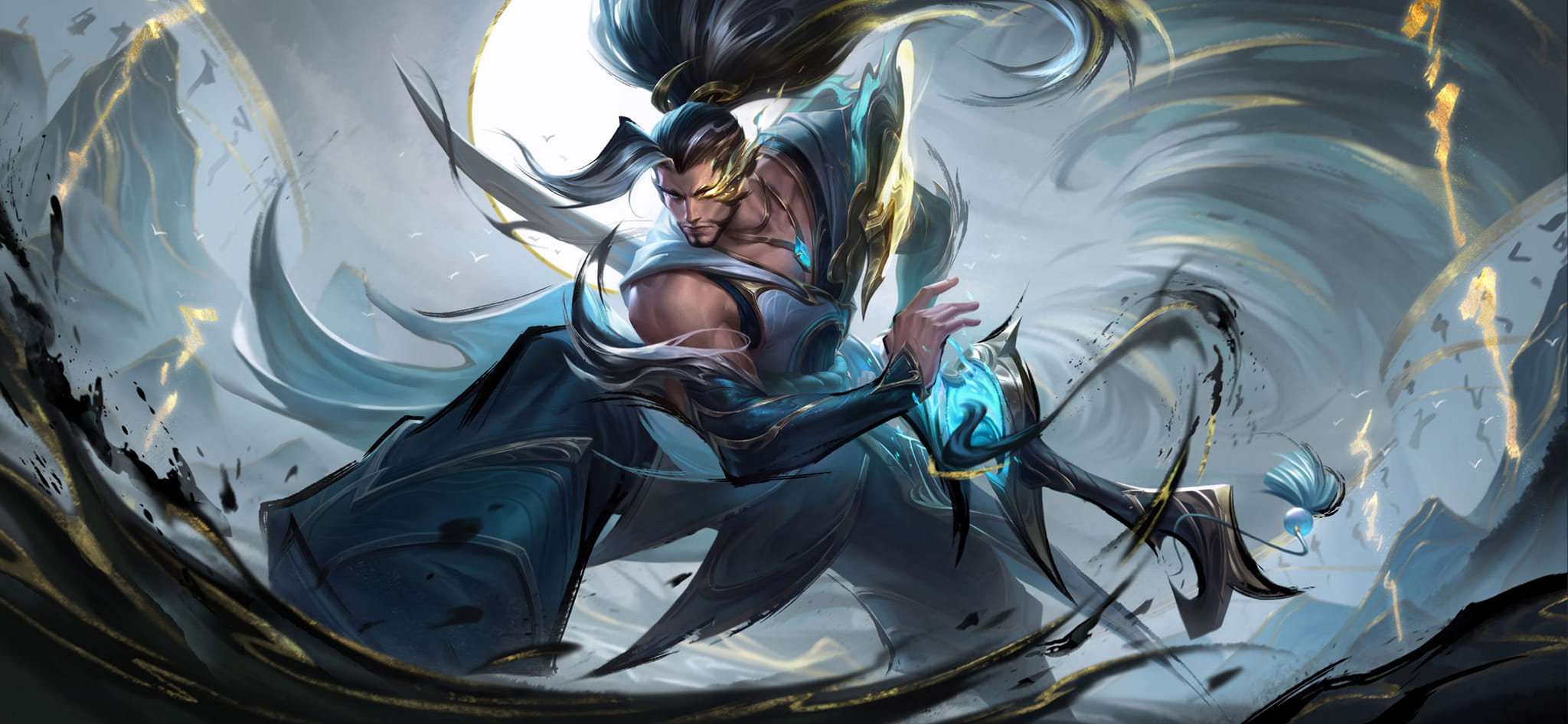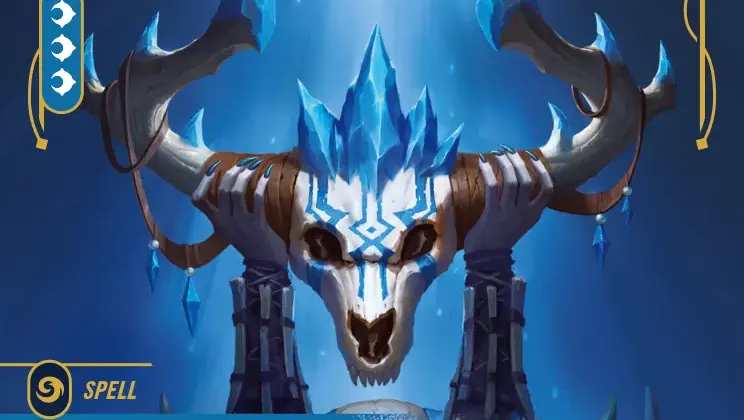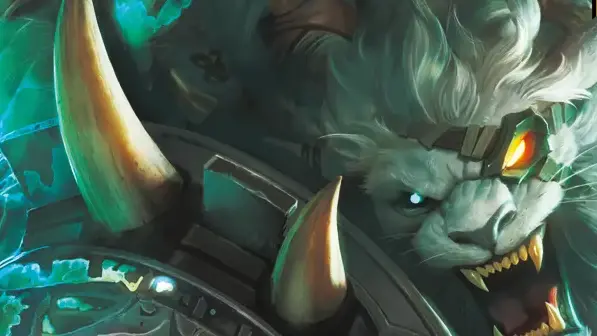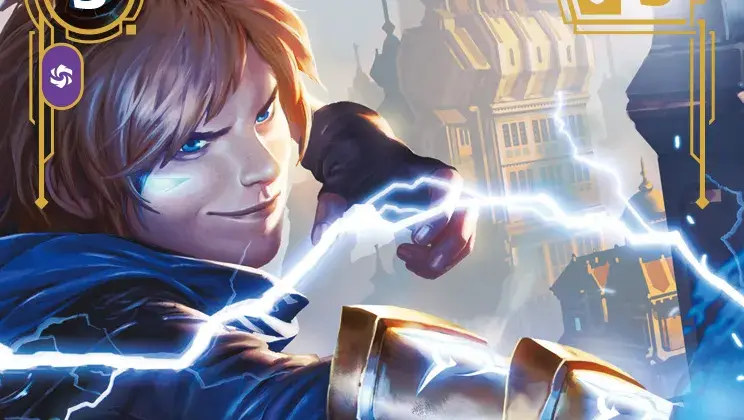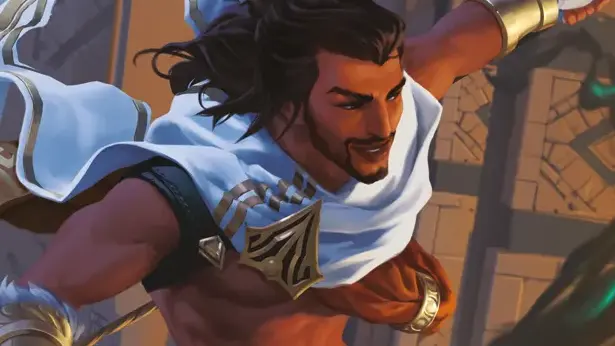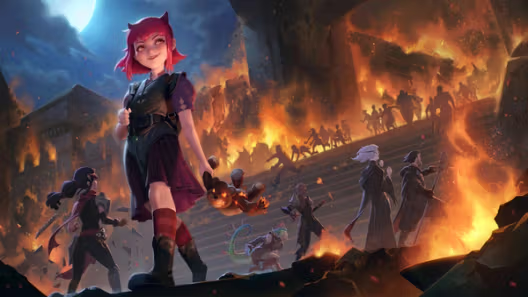One of the most unique elements of Riftbound's gameplay is the fact that combat takes place over two battlefields, which act as unconnected islands that have no bearing on one another, and take multiple turns to transfer between as per the general game rules. But, what if a mechanic could allow you to break the rules and move units between those battlefields?
Enter Ganking. It's a simple mechanic that has one line of text. But, the way that it changes the game is part of what makes Riftbound so special, and is part of the game's unique identity. It can make a massive difference to the flow of the game, and some decks like Yasuo revolve completely around breaking parity with it. This is just one way that movement is going to be a massive part of how Riftbound plays, and even if your deck doesn't care about any advanced movement tech, you still need to be aware of it.
That's why in this guide, we're going to go over everything that you need to know about movement going into Riftbound. From the obvious, like Ganking, to non obvious movement strategies, and even how movement can be used against your own units. With this, you'll be able to be aware of one of the biggest aspects of Riftbound that some people just aren't aware of yet.
101: Movement
Movement is an interesting part of Riftbound, as it's unlike anything the TCG world has ever seen before. But much like in League of Legends, movement is going to be a crucial aspect of how your deck translates to gameplay.
There are a few simple rules to abide by when considering movement in Riftbound, that'll define how movement works:
- Exhausted units can't move independently: This is incredibly important, as once a unit is exhausted it can't move by itself, meaning you'll need another card to facilitate movement.
- You can't move between battlefields: Outside of ganking or other card effects, you can't move between battlefields. This means that you'll need cards to break this rule and create more advanced movement techniques.
- Moving to an enemy-occupied battlefield will start a Showdown: Without knowing this, you can easily make the mistake of starting a battle by moving a singular unit from your base to the battlefield using a card, without being able to bring any other units with it.
Generally speaking, with this being said, a deck with no other movement strategies can move a unit once per turn, as you'd need to exhaust a unit to do so. But, breaking this rule is a huge part of movement in this game, and something you need to understand to be able to either take advantage of it or counteract it.
As long as a requirement is met (so, a unit remains unexhausted or a card is able to move a unit from one place to another), you can move as many times as you'd like. This is not common, but can be seen with cards like Unforgivenand Showstopper, in which a unit can be moved independently of its exhausted status. This means that you can technically move a card from base to a battlefield and back, or from base to base with two total moves. But, you can't move from base to battlefield to battlefield (without a little help, as we'll show later).
This does mean that you can steal a battlefield, and then pull a unit back to base from safety, but it also seems counterproductive to do so when holds offer points. However, it is an option if required, and is definitely worth considering if the opportunity arises.
Ganking
Ganking very simply reads "[This unit] can move from battlefield to battlefield.". This single line of text may seem unassuming, but it's simply one of the best mechanics in the game as it helps you break the rules of movement and map control.
Suddenly, facilitated by one of the prior cards (let's say Unforgiven[/card[), a unit can move from base to one battlefield, and then to the other battlefield, taking both and scoring two points if the opportunity arises. This is a whole new dynamic, and can even win the game out of nowhere if your opponent doesn't suspect it.</p> <blockquote class="wp-block-quote is-layout-flow wp-block-quote-is-layout-flow"> <p><strong>Scenario:</strong> You're playing Yasuo, and you're tied at 7-7 with your opponent. It's your turn, and you have a unit with 3 Might and ganking in base. Your opponent controls both battlefields, one with 2 Might worth of units and one with 1 Might worth of units. </p> </blockquote> <p>Ganking enables a game win here, as you can use [card]Unforgiven to conquer one battlefield, and then use ganking to move over and conquer the other. And, cards like Kayn Unleashed can take advantage of movement even more, letting you take out whole boards with a singular unit if used correctly.
Comboing with Movement
Of course, each time you conquer a battlefield, you get another point. This doesn't account for the number of times a unit has gained a point, and can be done the same time with multiple units. Which means that with the right cards in hand ganking involved, you can score two or three points in a singular turn.
We haven't seen much of what movement is available at the time of writing, but even just another card that can cause a unit to consistently move twice in one turn can create a 4-point Yasuo combo turn with Unforgiven, which means that this will only get better as more cards and sets are revealed.
However, using cards that ready units can also facilitate this. Yasuo's signature spell, Last Breath, is a useful removal spell that also lets you launch another attack at your opponent, and multiples of it can lead to a chain of four or five attacks in a single turn, meaning that you can win the game out of nowhere if you play your cards right.
Closing Time
Movement is looking to be one of the most interesting things about Riftbound, and is definitely worth getting to grips with if you want to be able to take your knowledge to its maximum potential. With this, you can win games out of nowhere in a blitz, and be able to play decks like Yasuo that are looking to take full advantage of it.
If you're looking for more great Riftbound content, take a peek at Riftbound.gg and everything else we have to offer! As we get to the release, we'll have a ton more to talk about and will be there giving you the low-down every step of the way, so don't miss out!
In any case, thank you for your time, and I'll see you on the battlefields.

